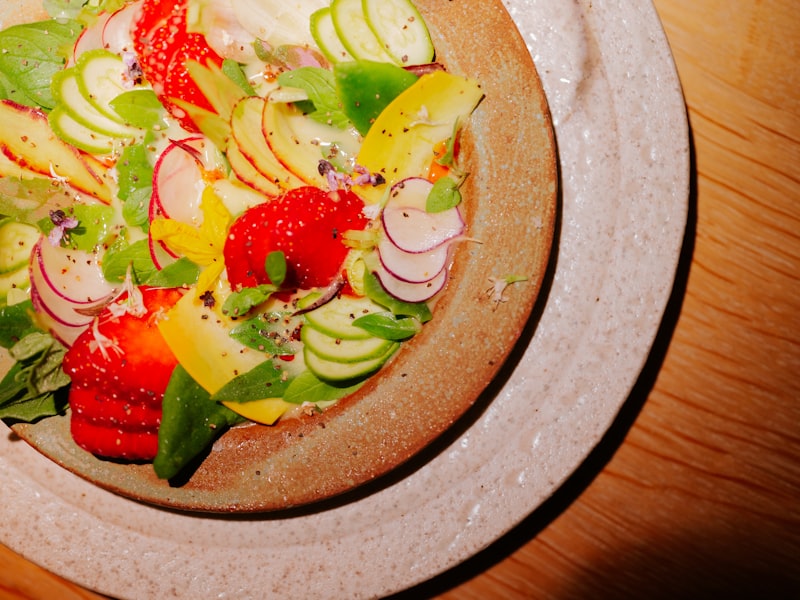One of the primary benefits of keeping bees is their role as pollinators. Bees are responsible for pollinating a significant portion of the world’s food supply, including fruits, vegetables, and nuts. By maintaining bee colonies, beekeepers contribute to agricultural productivity and biodiversity.
Another allure of beekeeping is the honey itself. Known for its natural sweetness and various flavors depending on the flowers visited by the bees, honey is not just a tasty treat but also has potential health benefits. From its antimicrobial properties to its use in natural remedies, honey is a versatile product of beekeeping.
However, along with these benefits come responsibilities. Beekeepers must ensure the health and welfare of their bee colonies. This involves regular inspection of hives, monitoring for diseases, and providing adequate nutrition. Beekeeping also requires knowledge of bee behavior and seasonal hive management to prevent issues such as swarming.
Furthermore, beekeepers play a crucial role in bee conservation. With global bee populations facing challenges such as habitat loss and pesticide exposure, responsible beekeeping practices can contribute to the preservation of these vital pollinators.
While beekeeping offers sweet rewards in the form of honey and contributes to environmental sustainability through pollination, it also requires dedication and responsibility. By understanding the benefits and responsibilities associated with beekeeping, enthusiasts can embark on this journey with confidence, knowing they are making a positive impact on both their environment and their community.
Unveiling the Buzz: Exploring the Benefits of Beekeeping for Beginners
Have you ever wondered about the secret life of bees and how beekeeping could be more than just a hobby? Beekeeping, often known as apiculture, isn’t just about harvesting honey; it’s a gateway to a world buzzing with benefits for beginners.
Firstly, beekeeping offers a unique connection to nature. Imagine being surrounded by the gentle hum of bees as they go about their daily tasks, pollinating flowers and creating honey. It’s a mesmerizing experience that brings you closer to the natural world, fostering a sense of stewardship for the environment.
Beyond its tranquil charm, beekeeping provides tangible rewards. Honey, the golden nectar produced by bees, isn’t just delicious; it’s also packed with health benefits. From its antioxidant properties to soothing sore throats, honey is a versatile addition to any pantry. As a beekeeper, you have the satisfaction of knowing exactly where your honey comes from – straight from your own hive.

Moreover, beekeeping contributes to biodiversity and food security. Bees play a crucial role in pollinating crops, ensuring the production of fruits, vegetables, and seeds. By maintaining healthy bee colonies, beekeepers actively support agricultural productivity and ecosystem resilience.
Embarking on beekeeping as a beginner may seem daunting at first, but it’s a journey filled with learning and rewards. It teaches patience, observation, and a deep respect for the delicate balance of nature. As you delve into the world of beekeeping, you’ll discover a community of enthusiasts eager to share knowledge and experiences, guiding you through every step of your beekeeping adventure.
So, whether you’re drawn to beekeeping for its sweet rewards, environmental impact, or simply the joy of connecting with nature, exploring this ancient practice as a beginner promises an enriching experience like no other.
From Pollination to Profit: How Beekeeping Can Boost Your Garden and Wallet
Imagine your garden as a bustling marketplace, with bees as the diligent workers ensuring every stall thrives. Beekeeping isn’t just about honey – it’s a symbiotic relationship where both your plants and pockets benefit.

Firstly, let’s talk pollination. Bees are nature’s finest pollinators, flitting from flower to flower in search of nectar. As they do so, they transfer pollen grains, fertilizing plants and enabling them to produce fruits, vegetables, and seeds. It’s like having your own team of expert gardeners, ensuring a bountiful harvest each season.
The impact of pollination on your garden’s productivity cannot be overstated. Studies show that gardens with beehives nearby yield larger, more abundant crops compared to those without. This means juicier tomatoes, sweeter strawberries, and plumper pumpkins – all thanks to the humble bee.
Now, let’s get to the sweet part – honey. Beekeeping rewards your effort with golden jars of liquid gold. Beyond its delicious taste, honey is a versatile product with myriad uses from sweetening your tea to being a star ingredient in homemade beauty products. It’s not just a treat for your taste buds but also a potential source of income if you decide to sell your surplus.
Moreover, beekeeping isn’t as daunting as it may seem. With the right knowledge and equipment, anyone can start their own hive. It’s a hobby that connects you with nature, teaches patience, and rewards dedication with tangible benefits.
The Sweet Science: Mastering the Art of Beekeeping for Environmental Rewards
Mastering the art of beekeeping begins with understanding these fascinating insects. Bees, particularly honeybees, play a crucial role in agriculture by pollinating flowers. This process isn’t just beneficial for the bees themselves but for us humans too. About one-third of the food we consume relies on pollination, making bees indispensable to our food supply chain.
Getting started in beekeeping doesn’t require acres of land or specialized knowledge, but it does demand respect and dedication. Beginners often begin with a hive box, frames, protective gear, and, of course, bees. Choosing the right location for your hive is vital; it should have access to sunlight, protection from harsh winds, and a nearby water source.
Once your hive is set up, observing and learning from your bees is the next step. Beekeeping involves regular inspections to ensure the health of the colony and the queen. It’s a hands-on experience where you’ll witness the intricacies of their behavior and the marvel of their teamwork.
Harvesting honey is perhaps the most rewarding part of beekeeping. When conditions are right, bees produce surplus honey that can be safely collected. This process not only provides you with a delicious natural sweetener but also supports the bees by managing their hive’s health.
Beyond honey, beeswax, pollen, and propolis are other valuable products beekeepers can harvest. Each has its uses, from candles and cosmetics to nutritional supplements.
Bee Guardianship 101: Responsibilities Every Beekeeper Should Know
Beekeeping isn’t just a hobby—it’s a responsibility that requires dedication and knowledge. As a beekeeper, your role goes beyond merely harvesting honey; you become a guardian of these essential pollinators. Understanding the responsibilities that come with beekeeping is crucial for their well-being and productivity.
Firstly, ensuring a suitable environment is paramount. Bees thrive in areas with ample food sources and protection from predators. Choosing the right location for your hives, away from pesticides and with access to diverse flowers, is fundamental to their health.
Regular hive inspections are another vital task. Monitoring hive conditions allows you to detect issues early, such as diseases or pests, which can devastate a colony if left unchecked. This proactive approach not only safeguards your bees but also helps maintain hive productivity.
Feeding and watering your bees during lean seasons or droughts is essential. Supplemental feeding with sugar syrup or pollen patties can sustain them when natural forage is scarce. Providing clean water sources near the hives ensures hydration, especially in warmer months when bees are most active.
Managing swarming behavior is also part of responsible beekeeping. Swarms are natural reproductive processes for bees, but they can be disruptive if not handled properly. Techniques like hive splitting or providing ample space can help mitigate swarming tendencies.
Lastly, staying informed and educated about beekeeping practices and local regulations is crucial. Joining beekeeping associations or clubs can provide valuable resources and support. Remember, beekeeping is a journey of learning and adaptation, ensuring the well-being of your bees while enjoying the rewards of their hard work.
This article aims to inform and engage readers interested in starting or improving their beekeeping practices, emphasizing the importance of responsible stewardship towards bees.
Frequently Asked Questions
What are the benefits of keeping bees
Discover the advantages of beekeeping with our concise FAQ. Learn about the benefits of bees for pollination, honey production, and environmental conservation. Understand how beekeeping can contribute to biodiversity and agricultural productivity while providing natural, sustainable products.
How can beekeeping benefit the environment
Discover how beekeeping benefits the environment by promoting pollination of plants, leading to increased biodiversity and healthier ecosystems. Beekeeping also supports local agriculture through enhanced crop yields and fosters community engagement in sustainable practices.
How do you start beekeeping
Learn the basics of beekeeping, including setting up a hive, choosing the right location, acquiring bees, and ensuring proper care and maintenance. Understand safety protocols, hive management techniques, and the seasonal tasks involved in nurturing a healthy bee colony.
What are the responsibilities of a beekeeper
Learn about the responsibilities of a beekeeper, including hive maintenance, ensuring bee health, managing honey production, and contributing to pollination efforts.
What equipment is needed for beekeeping
Discover the essential equipment required for beekeeping, ensuring you have the tools necessary to maintain a successful hive. Learn about the key items like bee suits, smokers, hive tools, and bee brushes that are vital for safe and effective beekeeping practices.


